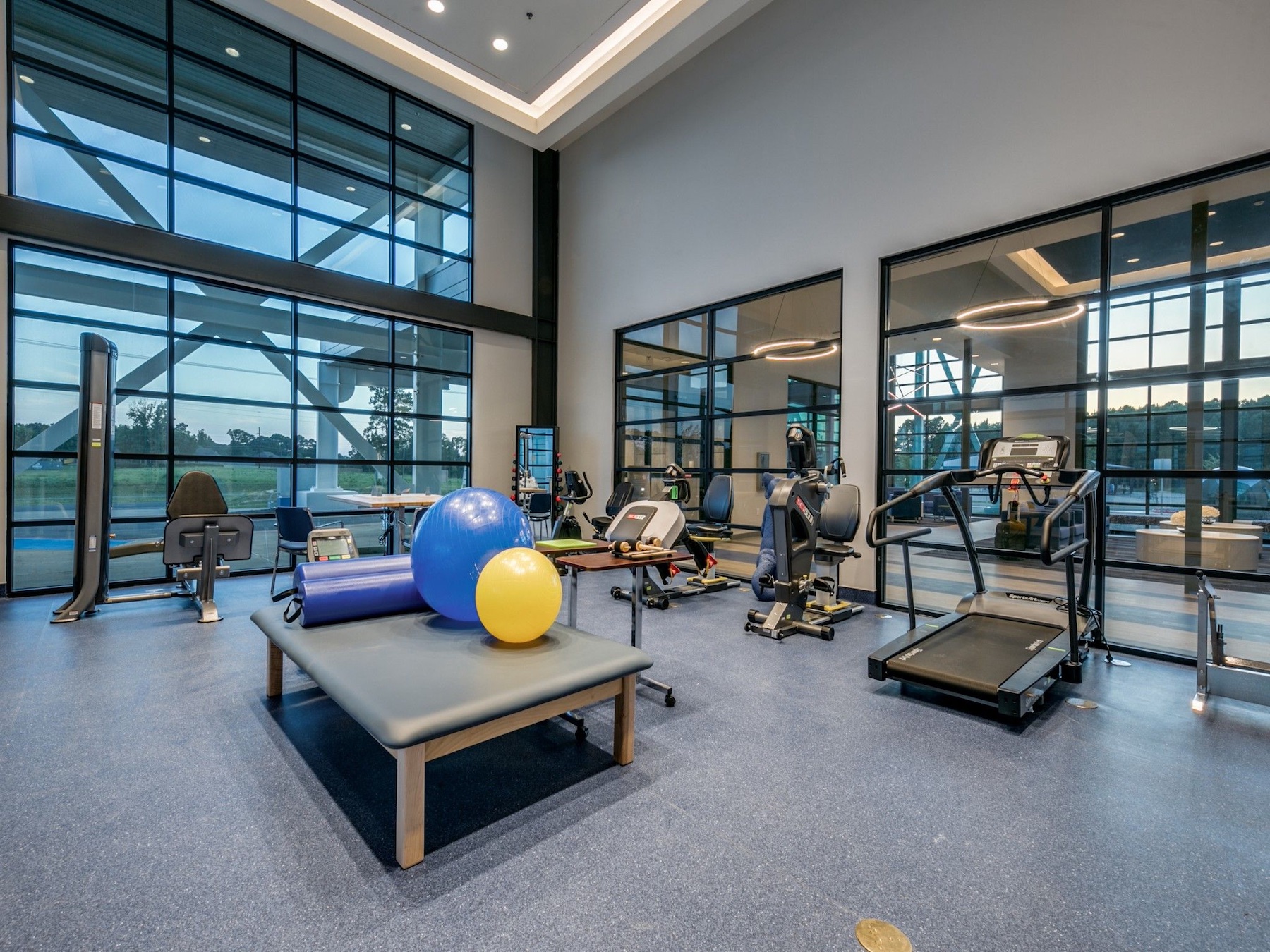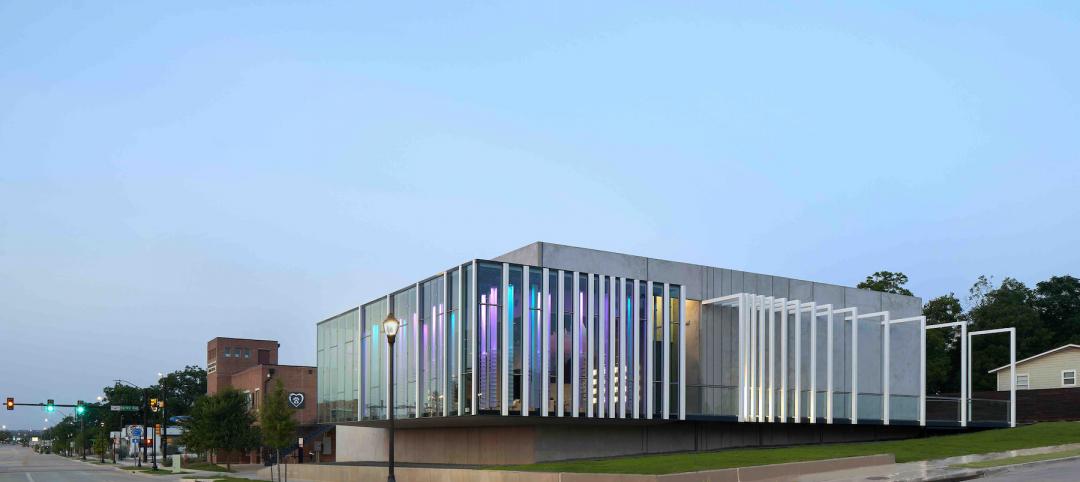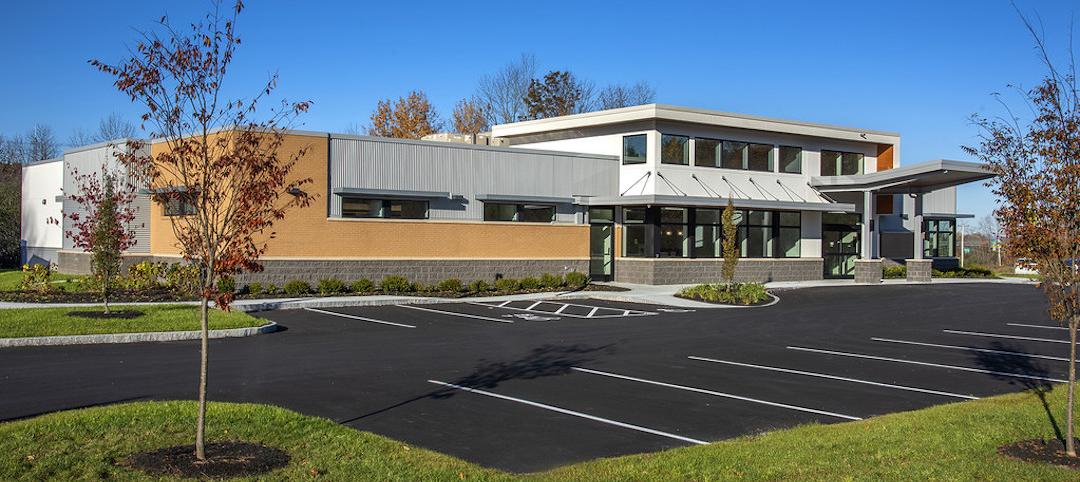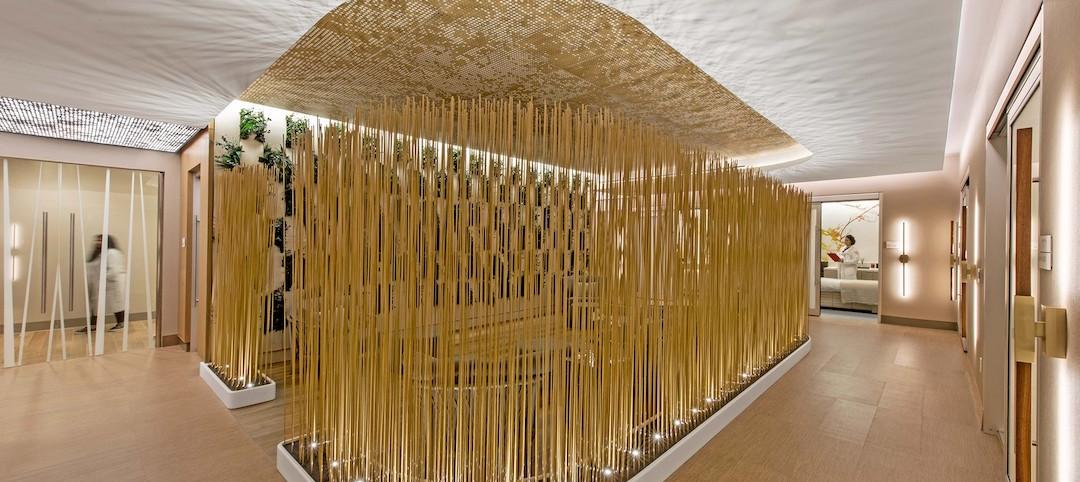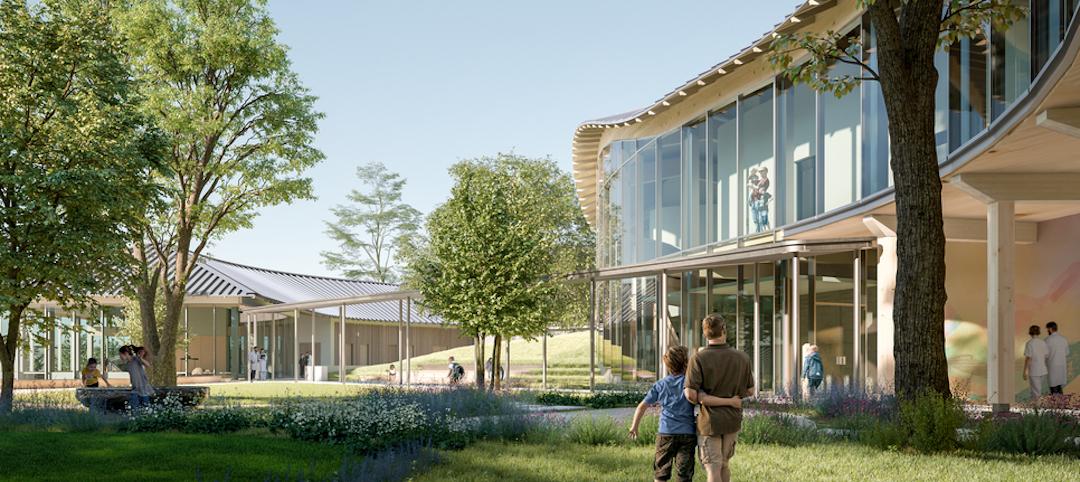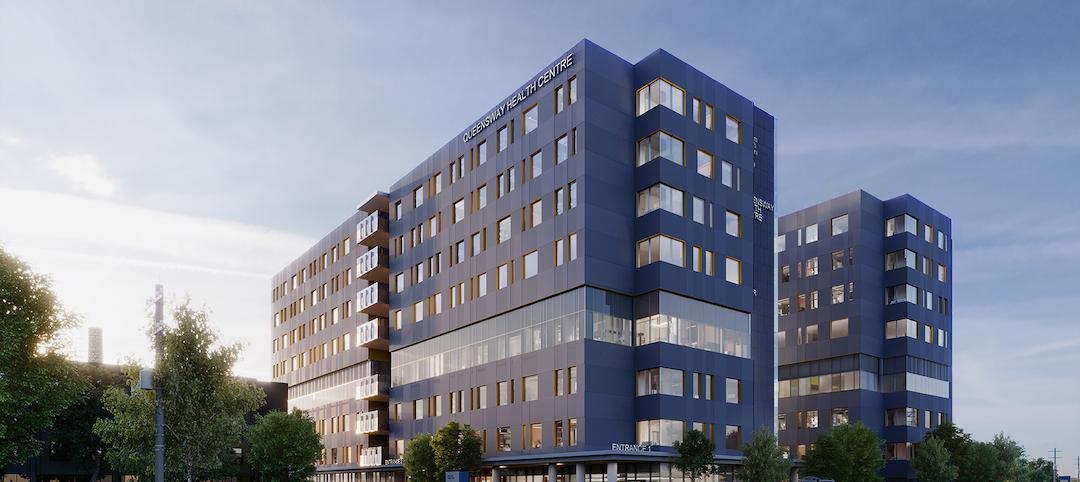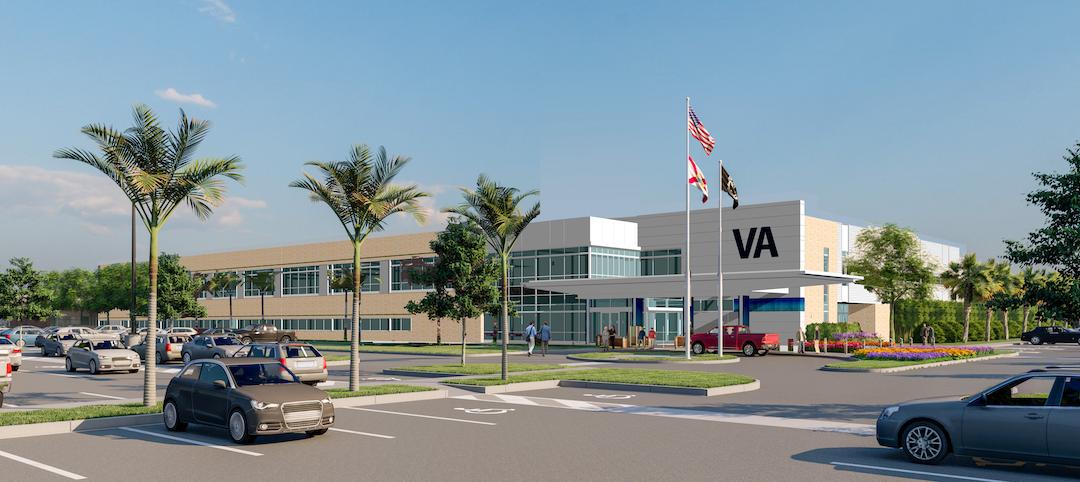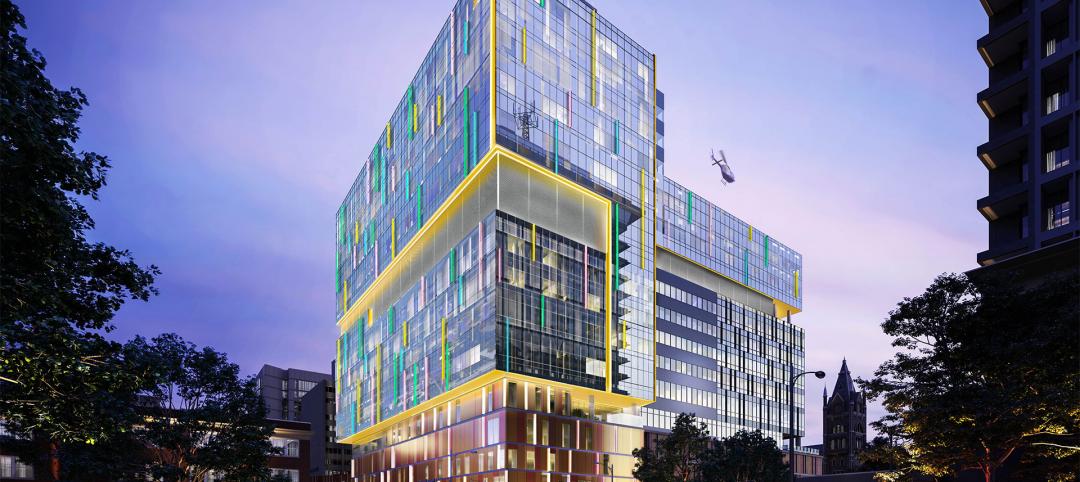In August, Dallas-based Everest Rehabilitation Hospitals revealed its plans to build a 36-bed inpatient physical rehab facility at The Villages, the massive active-adult and retirement community in Florida. That hospital will be Everest’s eighth under construction in the Sunshine State.
The 41,000-sf Villages project on 8.47 acres of land in Oxford, Fla., will cost $24 million to build. It is the latest in Everest’s construction of identical multi-specialty acute-care hospitals in several states. The hospitals serve patients recovering from stroke, brain injury, neurological conditions, trauma, spinal cord injury, speech impediments, amputation, pulmonary disease, orthopedic injury, COVID-19, and other medically complex conditions.
The hospitals are equipped with in- and outpatient physical therapy gyms, an outdoor mobility courtyard, aqua therapy, a furnished life skills training apartment with a full kitchen and bathroom, in-house dialysis, and a pharmacy. There are also gathering areas for families that include a large dining room.
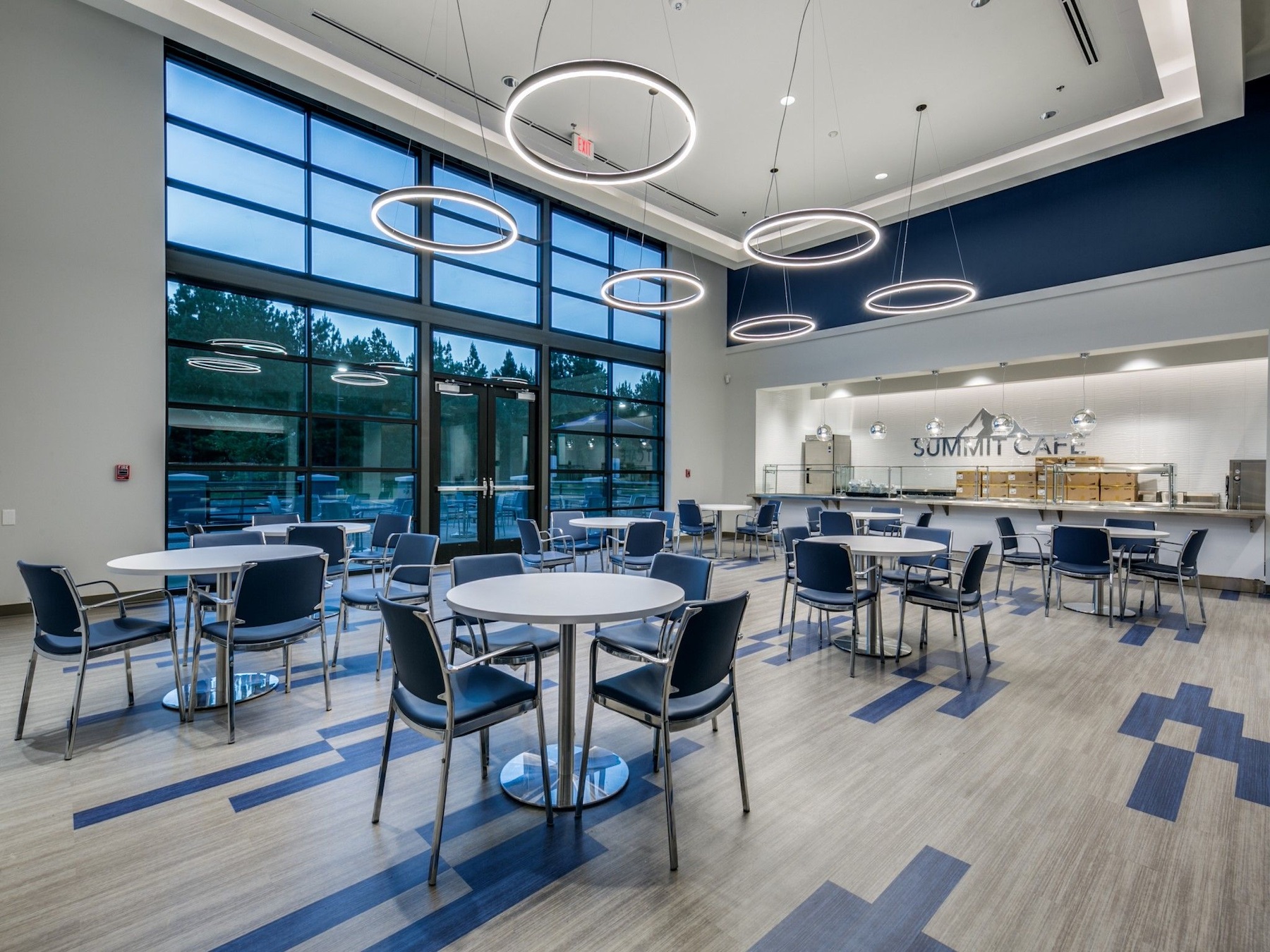
DBA Architects, based in McKinney, Texas, whose design work is heavily in the residential sector, provided the prototype design for Everest that had to be universal enough so it could be replicated to accommodate Everest’s expansion strategy. The company opened its first hospital in Longview, Texas, in June 2019 and currently has six facilities operating in Texas, Oklahoma, Arkansas, and Ohio. Everest has another 10 hospitals in various stages of design and construction, with its facility in El Paso, Texas, scheduled to open by the end of this year, and another in San Antonio opening in the first quarter of 2023.
Bryan Moore, DBA Architects’ CEO and President, tells BD+C that Everest’s plan has been to grow as rapidly as possible to meet increasing physical rehab needs. That growth is being propelled by entrepreneur Marc Sparks, Everest’s Co-founder and President of the private-equity firm Timber Creek Capital, which is Everest’s developer. (According to his online bio, Sparks has been involved in over 60 startups, “some outrageously successful, others downright disasters.”)
Sparks has stated that he wanted Everest’s ambiance to be more hotel-like and service oriented than institutional. “What Marc didn’t want was a hospital that looked like a place where people go to die,” says Moore. So Everest Rehab’s design and programming include art work, natural light, high ceilings, outdoor dining, room service, and social events.
A plan for expansion: Everest Rehabilitation Hospitals
Repetitive design is often frowned upon by architects, but it certainly has its place: ask any data center or multifamily housing developer. And Everest, says Moore, was attracted to this kind of design’s economies of scale, so that the hospitals could offer “the same menus, same therapies, and medications.” Moore describes this process as “cut and paste,” although he is quick to add that it DBA still had plenty of design leeway.
There’s no prefabrication in the construction of Everest’s hospitals, although Moore says that prefab is now being considered for the patients’ wing as Everest plots its expansion. (Everest’s buildings are expandable to 48 beds.)
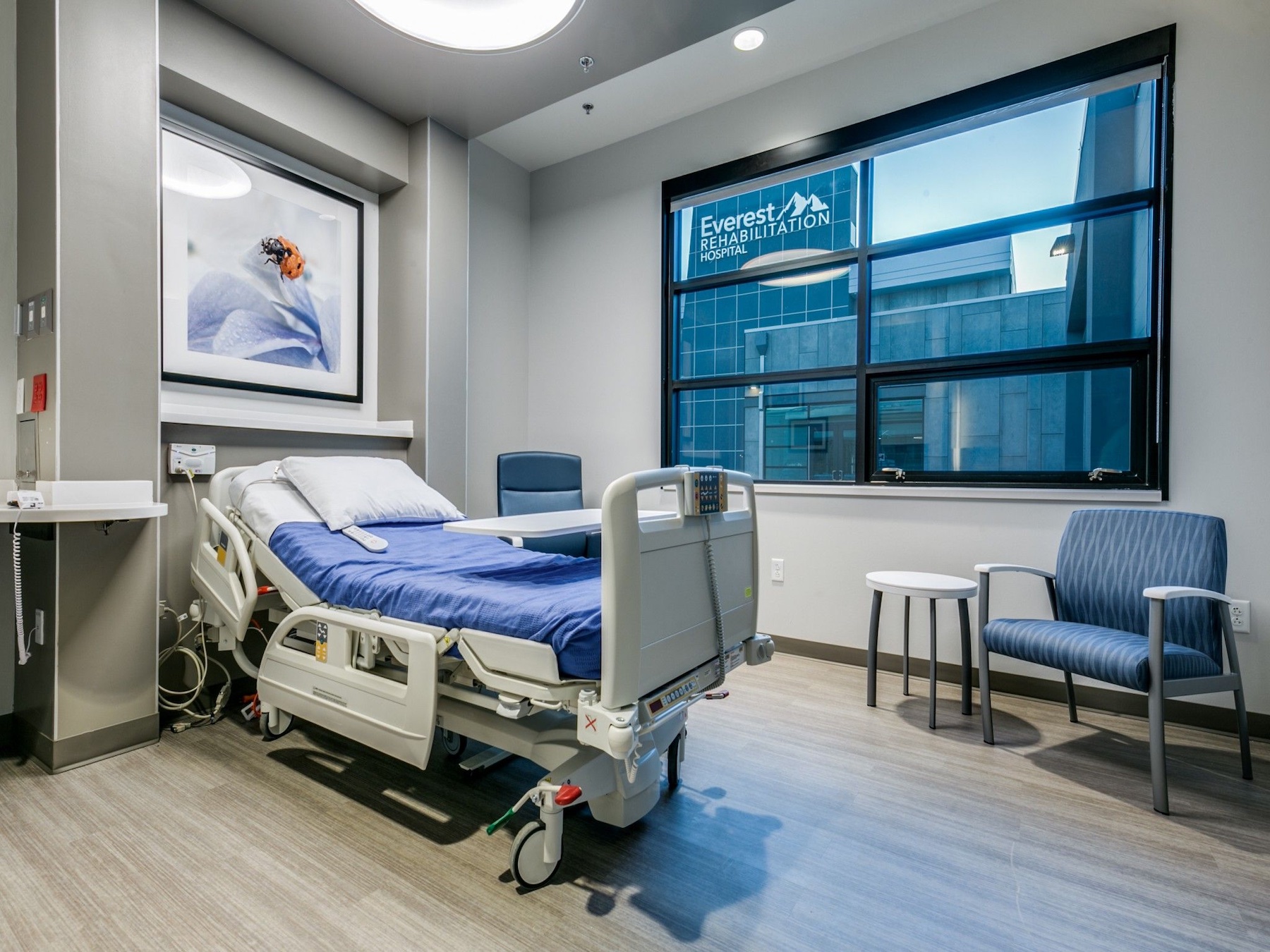
Everest hasn’t stated yet how many hospitals it intends to build and operate beyond the 16 it already has opened or are under construction. Everest’s business model uses an actuarial program to determine need based on the number of rehab hospitals and beds within a 100-mile radius of a given market. Last year, the Florida market “opened up,” says Moore, when the DeSantis administration did away with a restriction that had required arduous proof of need before a new healthcare facility could be built.
Among the four contractors it has used to build its hospitals is H.J. High Construction, which Moore says has experience building hospitals in Florida.
Moore and Sparks met when they were working on a homeless shelter project for Samaritan Inn. When Sparks shared his vision for Everest’s rehabilitation hospitals, Moore was ready to jump in: DBA was already doing a lot of repetitive design for its multifamily clients. And back in the late 1980s, the firm was involved in the prototype design business for fast food franchises.
Related Stories
Projects | Mar 10, 2022
Optometrist office takes new approach to ‘doc-in-a-box’ design
In recent decades, franchises have taken over the optometry services and optical sales market. This trend has spawned a commodity-type approach to design of office and retail sales space.
Industry Research | Mar 2, 2022
31 percent of telehealth visits result in a physical office visit
With little choice but to adopt virtual care options due to pandemic restrictions and interactions, telehealth adoption soared as patients sought convenience and more efficient care options.
Healthcare Facilities | Feb 15, 2022
New outpatient ophthalmology surgical center opens in Newington, N.H.
JSA Design designed the project.
Resiliency | Feb 15, 2022
Design strategies for resilient buildings
LEO A DALY's National Director of Engineering Kim Cowman takes a building-level look at resilient design.
Healthcare Facilities | Feb 10, 2022
Respite for the weary healthcare worker
The pandemic has shined a light on the severe occupational stress facing healthcare workers. Creating restorative hospital environments can ease their feelings of anxiety and burnout while improving their ability to care for patients.
Coronavirus | Jan 20, 2022
Advances and challenges in improving indoor air quality in commercial buildings
Michael Dreidger, CEO of IAQ tech startup Airsset speaks with BD+C's John Caulfield about how building owners and property managers can improve their buildings' air quality.
Healthcare Facilities | Jan 7, 2022
Supporting hope and healing
Five research-driven design strategies for pediatric behavioral health environments.
Healthcare Facilities | Dec 20, 2021
Stantec will design the new Queensway Health Centre
The project is located in Toronto.
Healthcare Facilities | Dec 16, 2021
Leo A Daly designs mental health clinic for veterans in Tampa
The new facility will consolidate all mental health services the VA offers into one clinic.
Healthcare Facilities | Dec 15, 2021
COVID-19 has altered the speed and design of healthcare projects, perhaps irrevocably
Healthcare clients want their projects up and running quicker, a task made more complicated by the shortage of skilled labor in many markets.


